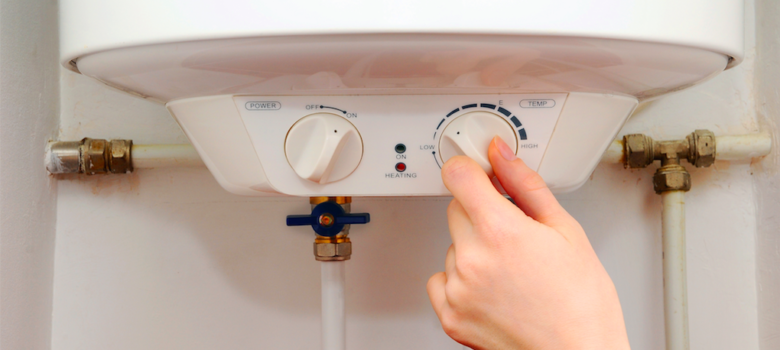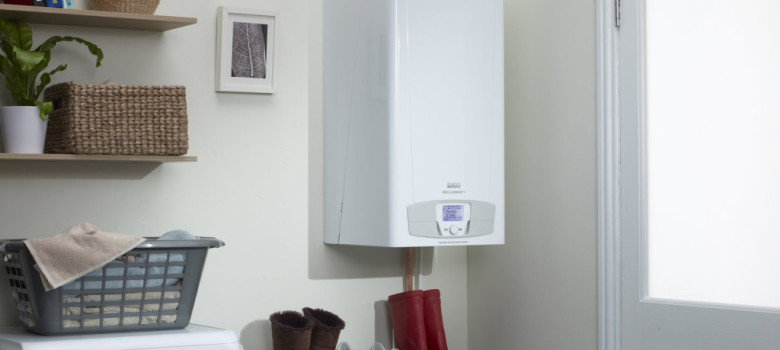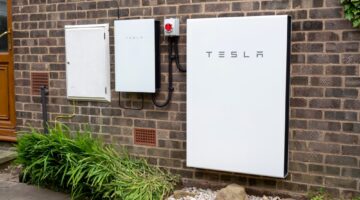
We get a huge amount of questions regarding boilers, but one of the most common queries relates to condensing boilers.
Condensing boilers are very efficient; they turn more of the energy contained within the gas they burn into useful heat. They do this by recycling the heat that would otherwise be wasted within the flue gas.
When fuel burns, it produces a flame that is used to heat water, but as a by-product of combustion there are also waste exhaust gases. In non-condensing boilers, this warm exhaust gas is simply vented out into the external environment, where it goes to waste. In condensing boilers, this heat is extracted from the exhaust gas before it enters the atmosphere.
A heat exchanger extracts the heat from the waste exhaust gases and this heat is then used to preheat water entering the boiler. This means less gas/oil is now needed to get it to the required temperature.
How efficient are condensing boilers?
Condensing boilers are typically rated at over 90% efficient; this means that when 1 unit of gas burns, it produces 0.9 units of useful heat. Older non-condensing boilers can have efficiency ratings of 60% or less, so there are substantial energy savings associated with installing a new, energy efficient condensing boiler.
Remember with electric heating you get 100% efficiency, which means electric heaters are even more efficient than even the newest boilers. The issue is that the cost of a unit (1kWh) of electricity is 12.5 pence, while a unit of gas is closer to 3 pence. This means that even though gas boilers are less efficient, the cost of the running them is approximately a third of the price of electric heating.
Condensing boilers versus combi boilers
We often find people get confused between condensing boilers and combi boilers. A combi boiler is a type of boiler that doesn’t require a hot water tank – it produces hot water/heating as needed. New combi boilers will be condensing, that is they recycle the heat within the flue gases, which makes them far more efficient. You can find out which you have here.
Essentially, any boiler installed now will be a condensing boiler, which means you don’t need to specify it when you speak to your heating engineer. It is almost impossible to buy non-condensing boilers these days!
It is not just the fact condensing boilers are cheaper to run (because they are so efficient); they also play a role in reducing carbon emissions. Installing a condensing boiler in your home could save up to 1200kg of carbon per year.
Planned obsolescence of new boilers
Boiler manufacturers have come round to the fact they don’t want to give you a boiler that lasts a lifetime. The reason is pretty simple – if your current boiler lasts 50 years then they won’t be able to sell you a new one!
One downside of combination boilers is they are built with planned obsolescence in mind – i.e. they will work perfectly for 10-12 years and then they will break so you will need to buy a new boiler. Many new boilers will come with a 5, 7, even 10-year warranty; this is because the manufacturers of the boilers are pretty comfortable their systems will last without developing issues. But after the magic 10 years is up, the boilers may well need replacing.
We come across lots of people who are hanging onto old non-condensing boilers since they go on and on – we have seen boilers installed in the late 60s still running! The issues here are twofold:
- Firstly these really old boilers will be very inefficient.
- Secondly and perhaps more importantly, it is unlikely you will be able to get spares for the boiler if it is very old. This means that should your boiler break during the colder winter months, it can become very costly to replace it. Boiler installers tend to charge more in the winter, as demand is higher and households are more desperate to get them in quickly.
Our recommendation is that despite this planned obsolescence of new boilers, it is worth switching to a new boiler. We also recommend getting these boilers serviced regularly (ideally annually) to try and find and fix issues before the boiler breaks at an unexpected time.
Installing a new boiler?
Are you thinking about getting a new boiler? We have scoured the country for the best tradespeople, so that we can make sure we only recommend those we really trust.
If you would like us to find you a local installer to install a new boiler in your home, just fill in the form below and we will be in touch shortly!













Very useful as many people get very confused on the combi / condensing boiler thing. Article explains it nicely.
I have condensing boiler in my home but still very expensive to run. Why is it so expensive still? Have I not spent enough of my hard earned money to get the house warm?
Also, my thermostat – how high should I set it? Is 24 degrees ok?
Ravi
Do I have to replace my old boiler when I am doing a refurbishment? I am doing extensive works but the boiler is not condensing. I would rather not pay for a new boiler as the cost of the project is already too high.